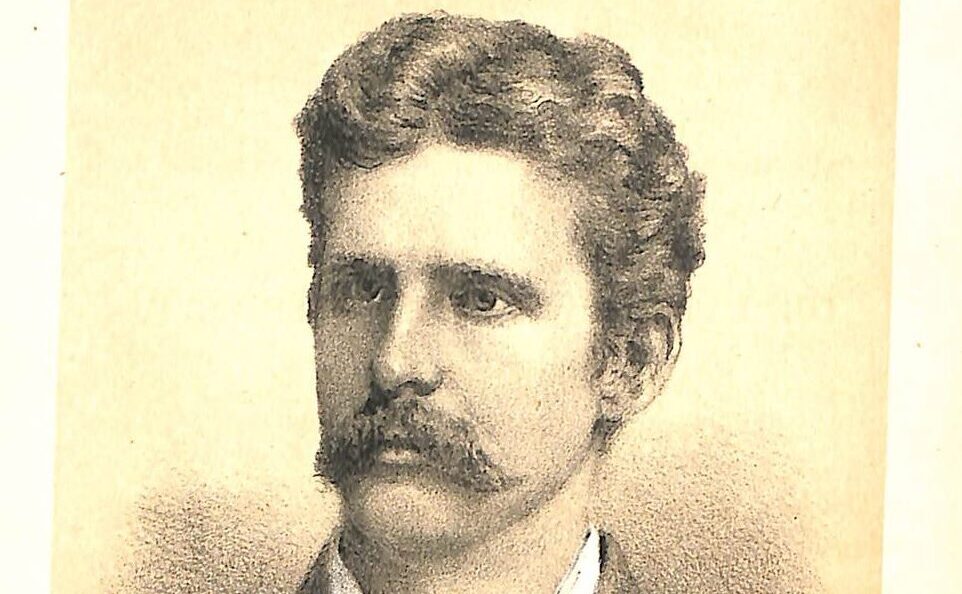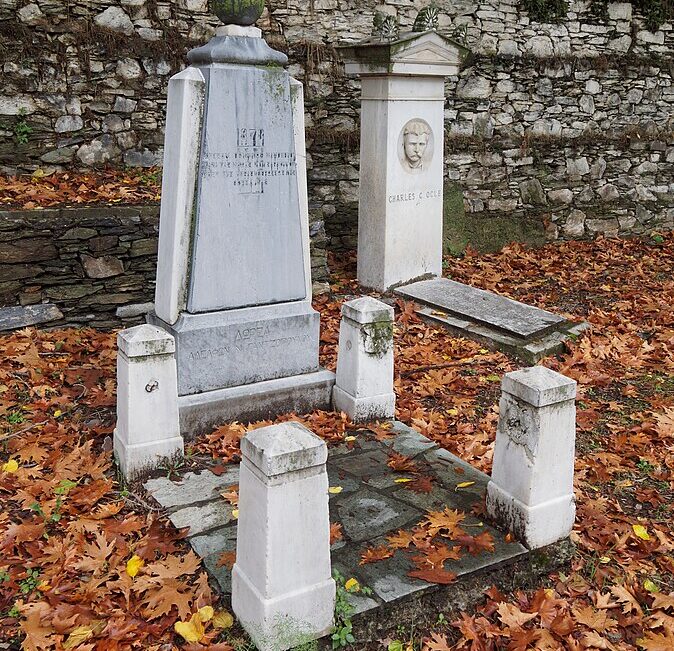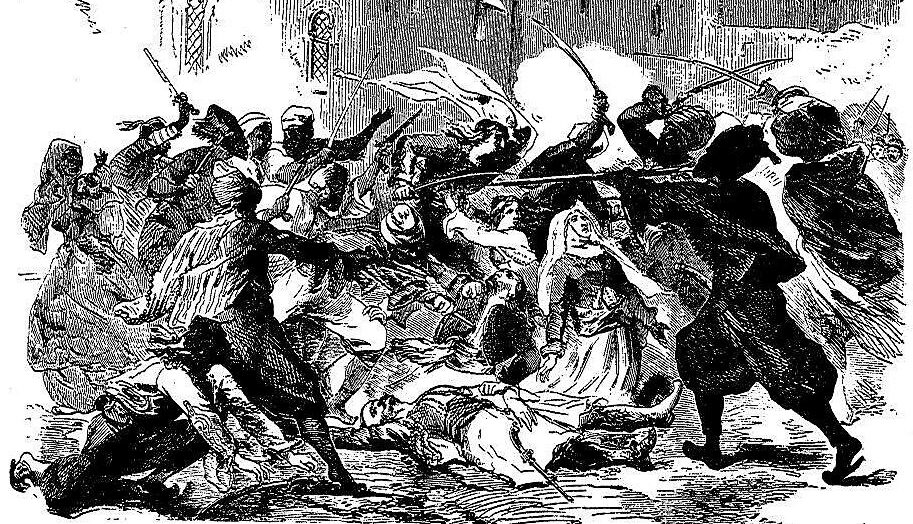By Pantelis Simotas,
In the annals of history, certain individuals emerge as chroniclers of pivotal events, their penmanship etching the narratives that shape our understanding of the past. Among them stands Charles Ogle, a distinguished British correspondent, who cast his gaze upon the tumultuous Thessaly Revolt of 1878. Beyond his journalistic endeavors, Ogle’s life intertwined with the landscapes of Greece, particularly the port city of Volos and the enchanting region of Pelion. This article delves into the life and legacy of Charles Ogle, illuminating his contributions to both the field of journalism and the historical tapestry of Greece.

Charles Ogle was born on 6 April 1851 in Marylebone, an area of central London, where his family then lived. Charles Ogle grew up in an idyllic and comfortable environment. After completing his secondary school education, he attended the University of London, where he studied architecture and later studied under the great architect Frederick William Roper. Alongside his work as an architect, he collaborates with the magazine Builder. “His talent for writing, his observation, his need to express himself about all that was happening around him, prompted him in July 1876 to approach the Times, like Stillman, like so many others, for cooperation from Athens. The Times’ cooperation with Ogle was formalized in September of that year, when the problems of health and cooperation between the paper and Stillman arose. The young cadet journalist, who from now on will bear the title ‘Times Correspondent’, is starting a new career from this moment on and is setting off for Serbia with a great mission“.
In 1878, the Greek populace initiated a revolution against Turkish rule in the Greek provinces. Ogle, serving as a war correspondent for the Times, ventured into the rebellious region of Thessaly to cover the uprising. His relentless reporting, appearing almost daily in the Times, vividly depicted the suffering of civilians, firmly aligning himself with the Greek cause. He not only wrote fervently, but also actively engaged in aiding and protecting civilians, earning both admiration and ire. His accounts, filled with graphic depictions of atrocities, drew strong reactions from British public opinion and the Ottoman government, which formally expressed dissatisfaction with his reports.
The Battle of Makrinitsa held significant importance in Ogle’s coverage. Lasting three days, it resulted in substantial civilian casualties, further exacerbated by the involvement of disorderly Circassian forces. Foreign consuls ascended to Pelion to investigate and halt the massacres, seeking information from Ogle, who had gone missing for two days. Sadly, Ogle was found murdered, purportedly by Turkish soldiers, though the circumstances remained murky. Despite efforts, the perpetrators were never apprehended, leading to a conclusion by British authorities that Ogle, biased in favor of the Greeks, likely met his demise at the hands of Turkish soldiers.
Ogle’s murder reverberated throughout Greece and Europe, prompting attention even in the British House of Commons. He posthumously received the Medal of the Order of Saint George from the Greek Republic, with his funeral organized in Athens by Charilaos Trikoupis, a close friend. On March 29, 1878, his funeral procession culminated at the First Cemetery of Athens, followed by the placement of a tombstone at his grave, later relocated to Makrinitsa in 1984, where it remains a testament to his memory.

In the annals of history, the name Charles Ogle shines brightly as a beacon of courage and integrity, his legacy woven into the fabric of our collective memory. Through his writings and his deeds, he reminds us of the power of words to inspire change and the enduring impact of those, who dare to speak truth to power. As we navigate the currents of the present, let us draw inspiration from Ogle’s example, honoring his memory by upholding the values he held dear. In a world often besieged by turmoil and injustice, Ogle’s life stands as a testament to the indomitable spirit of human resilience and the timeless quest for freedom. As we reflect on his journey, may we be reminded of our capacity to shape the course of history, one courageous act at a time.
References
- Αγγελική Μέρου. Έγκλημα χωρίς τιμωρία: Βρετανοί πολεμικοί ανταποκριτές στη Θεσσαλία (1875 – 1883) και η δολοφονία του Καρόλου Ογλ. Ταχυδρόμος. Bόλος. 2010.
- Ανδρονόπουλος, Β. Κ. Δολοφονία Καρόλου Ογλ εν τη μάχη Μακρυνίτσης: Δράμα Εθνικόν εις πράξεις δύο μετ’ Αποθεώσεως. Γ. Μαρινόπουλος. Τρίκαλα. 1890.
- Κάρολος Ογλ: Ο φιλέλληνας ανταποκριτής των Times. ΕΡΤ. Available here
- Κάρολος Ογλ, ο φιλέλληνας ανταποκριτής των Τάιμς που δολοφόνησαν και αποκεφάλισαν οι Τούρκοι στη Μακρινίτσα. Ενταφιάστηκε στο Α’ Νεκροταφείο, αλλά ο τάφος του πουλήθηκε και οι πλάκες χρησιμοποιήθηκαν σε πεζοδρόμια. H Μηχανή Του Χρόνου. Available here




